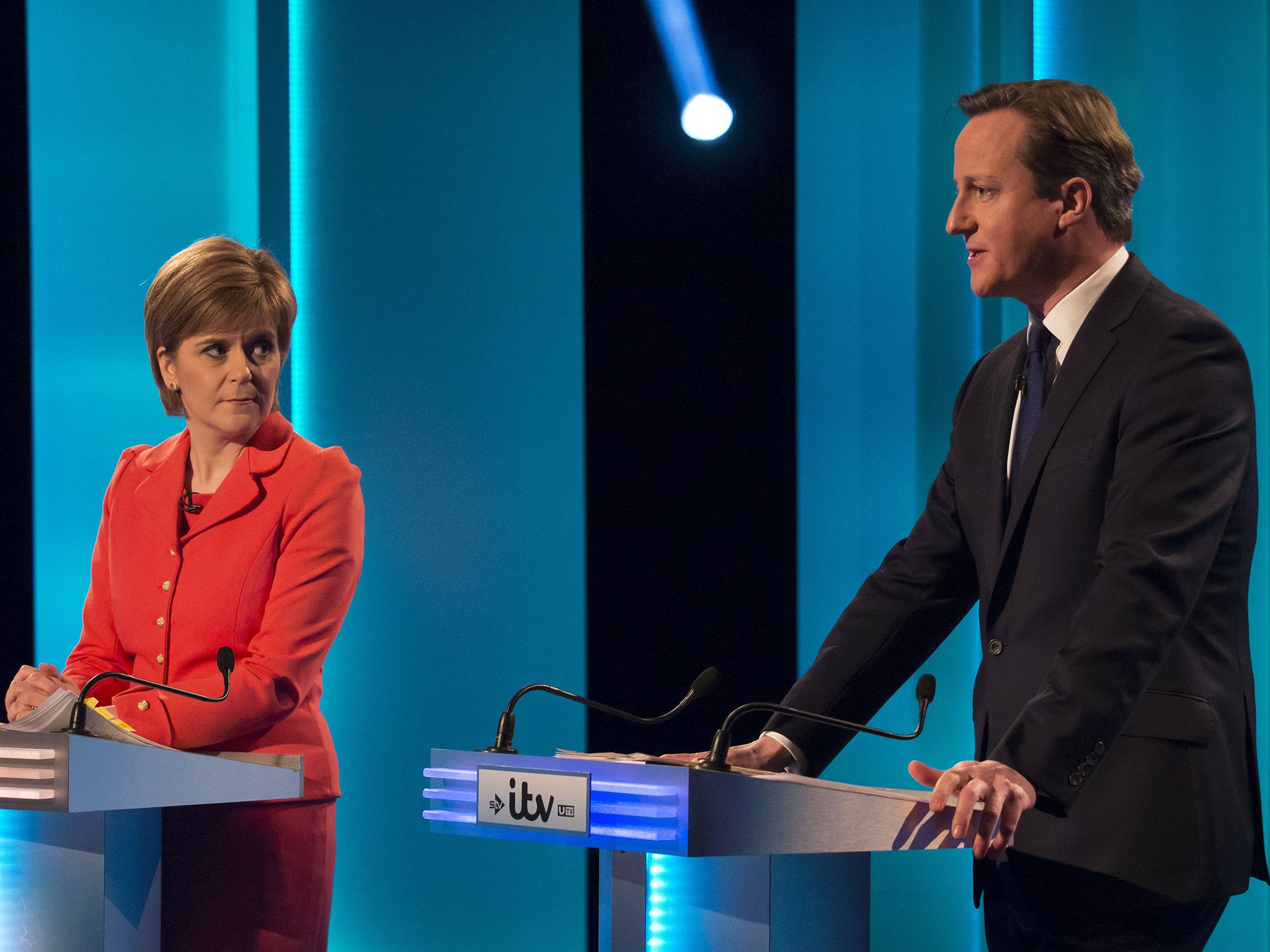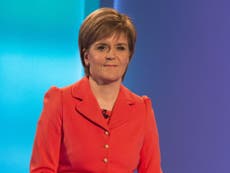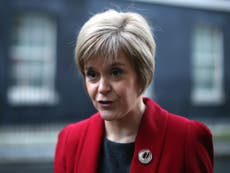A leader not even standing will determine the election’s outcome
Ed Miliband’s response to the rise of the SNP and Sturgeon’s prominence requires subtlety rather than a sledgehammer


The opinion polls are barely moving. The policy dividing lines between the parties were set in stone years ago. Even so, this long election campaign needs twists and turns, a star turn to inject novelty into a landscape that has been familiar for so long.
In the last election the performances of Nick Clegg in the TV debates were the twist in an otherwise static campaign. This time the SNP leader, Nicola Sturgeon, meets the demand for novelty. After her assured performance in last week’s TV debate, confidently articulating left of centre views rarely heard in England, she attracts headlines across the UK. Not used to having its views challenged by a speaker of likeable accessibility, the Daily Mail describes her as the most dangerous woman in the country.
The Telegraph reports a contentious memo in which Sturgeon is said to have preferred Cameron as Prime Minister rather than Miliband. After the debate she returned to a heroine’s welcome in Scotland while questions whirl around her.
Does she indeed regard Cameron as more prime ministerial than Miliband while claiming to be willing to work only with a Labour government? To what extent would she co-operate with a minority Labour government? What, precisely, does she mean when she declares that she is anti-austerity? Her sudden prominence is both highly significant and very strange.
The significance takes many forms. Of the party leaders who have no chance of being the next Prime Minister, she is the one with momentum. Apart from the Conservative and Labour leaders there is realistically only space for one other to command extensive media attention, to be talked about. The focus on Sturgeon means Nigel Farage no longer monopolises the uncontaminated space reserved for leaders who have not had to make tough decisions at Westminster. This is the first significant consequence. Sturgeon centre stage in a crowded campaign is bad news for Ukip.
The focus on her is also, more predictably, bad news for Nick Clegg and his party. He performed well last Thursday. He is the most natural TV performer of the three main leaders and occupies distinctive terrain in the campaign. But as he is contaminated by Westminster power, few are listening to him.
On one level, Sturgeon’s authoritative performance last week was much worse news for Ed Miliband. Above all, it is Labour that suffers as the SNP makes hay. But Sturgeon’s prominence in this election is also very strange and provides Miliband with an opportunity. Most fundamentally, Sturgeon is not standing in the election. Not even in Scotland can anyone vote for her. In most of the UK it is not possible to vote for her party.
Another oddity is that, although her policies are much closer to Miliband’s than to Cameron’s, it is Miliband who would be the victim of her success. Polls suggest the Conservatives are quite likely to win most seats in England. If the SNP wipes out Labour in Scotland, it will probably be Cameron who leads the biggest party and has the first chance to form a government. The anti-austerity Sturgeon would have carved out a possible path to power for the leader that plans unprecedented spending cuts for the next two years.
If Sturgeon and Miliband were to have a long cup of tea together, they would agree on most matters. Even the shadow Chancellor Ed Balls would find a degree of common ground although, more tribal than Miliband, he finds the prospect of any arrangement with the SNP almost impossible to contemplate.
It is Balls who has put the most powerful Keynesian arguments since the financial crisis of 2008, more sophisticated than those put with imprecise accessibility by Sturgeon. In 2010, Balls’ warning that rigid austerity would lead to a second recession proved correct. He noted that George Osborne had moved away from such rigidity halfway through the last parliament and only then did the economy recover.
Now Balls warns that Osborne is about to embark on another period of rigidity. This does not place him and Miliband a million miles from the instincts of Sturgeon or, indeed, the Liberal Democrats’ Vince Cable, who views Osborne’s plans with alarm.
Miliband’s response to the rise of the SNP and Sturgeon’s increased prominence requires subtlety rather than a sledgehammer. He needs to convince voters in Scotland that he is not the same as David Cameron and to persuade English voters impressed by Sturgeon that he, too, seeks radical change. As both assertions are true, such a response involves no new policies but a more accessible framing of the key but familiar divisions between parties.
Tony Blair and Gordon Brown framed arguments with deft skill, missed since their departures. I suspect they would have adopted words along these lines in relation to the eternal debate about the deficit: “We will address the deficit without damaging the economy. The Conservatives will address the deficit even if it damages the economy.” On most other matters Scottish voters are protected by their separate powers, but on the economy Miliband must find a way to make clear that in some respects he more or less agrees with Sturgeon, while only he has the chance to implement a more expedient economic policy for the UK as a whole.
This is the ultimate irony and oddity of Sturgeon’s rise. The election is not about her. The choice is still between a Conservative government in some form or a Labour-led administration in some arrangement. Yet how she performs and the response in particular of the Labour leadership will almost certainly determine which prevails. Sturgeon is not standing but she is at the heart of the election.



Join our commenting forum
Join thought-provoking conversations, follow other Independent readers and see their replies